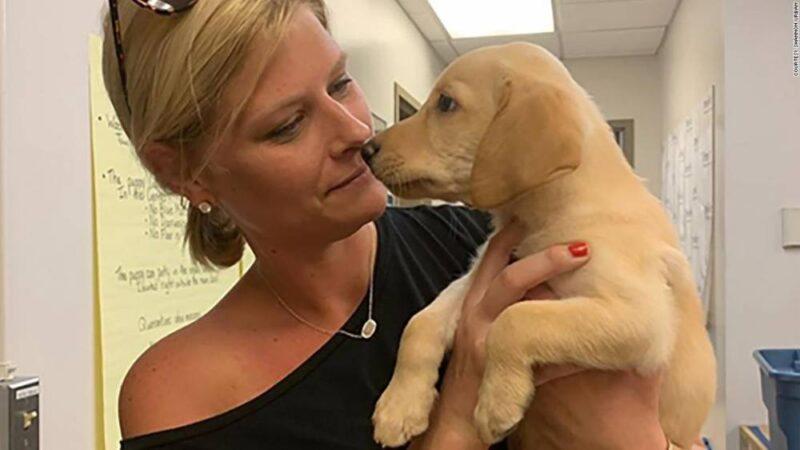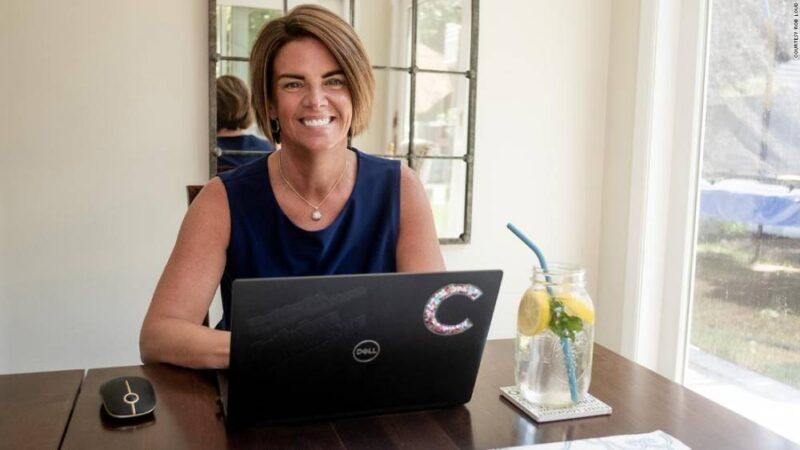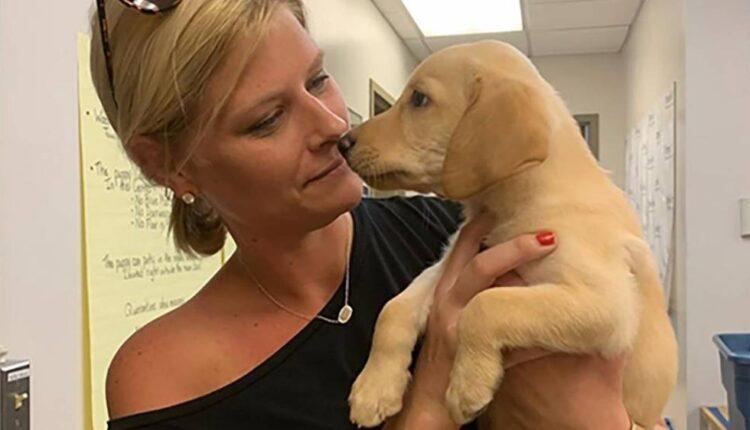They’re executives and moms who are also recovering alcoholics. How they’re getting through the pandemic
It’s easy to joke that the acute stresses of 2020 are enough to drive anyone to drink.
But that would be a dangerous option for Shannon Urban. In addition to being an executive and a divorced mother of a 9-year-old daughter, she is also a recovering alcoholic. The frustrations of home schooling her daughter while keeping up with her job as an associate dean in marketing at the University of Pennsylvania, and dealing with the pandemic have been stressful enough. But trying to do it all while staying sober has been a herculean task.
“Third grade math is too much for me. That was my crying this week,” said Urban, who recently moved in with her fiancé.Urban says her addiction stemmed from low self-esteem and a desire to mute the pain of always feeling like she was “a piece of trash.” Read More

Drinking used to be Shannon Urban’s way to relieve persistent feelings of inadequacy and anxiety. Now she’s intentional about finding healthier outlets to combat those feelings.Her drinking intensified in her late 20s when she became a mother, had a mortgage and took on more senior roles at a prior corporate job. “As more responsibilities creeped up in my life, my problem got bigger and bigger,” she said. Now that she’s working from home full-time, Urban said recovery is harder because she has more time alone with her self-defeating thoughts as she tries to juggle all her roles in a new way. “My brain says ‘You’re stupid and you can’t do this,'” Urban said. “You need something to take the anxiety away. … I don’t have drinking as an outlet. I’m alone much more with those destructive thoughts than I normally am. I have to figure out how to work through them in a healthy way and during a pandemic.”Colleen Kearney, 44, is also an executive who is a recovering alcoholic. She is separated from her husband, and their 13-year-old daughter lives with her. She works as senior counsel for BrandEd Holdings, which provides academic programs for well-known companies. In March and April, she describes working at a breakneck pace from home as the leader of the company’s Covid-19 task force, which had to make difficult personnel decisions and manage the transition to online learning for her clients’ education courses. She said she hadn’t worked that hard since she was a “baby lawyer.” Unlike earlier in her career, however, she did it sober. She attributes her drinking in part to family history. But her addiction ticked up about six years ago, she said, when she was unhappy at a former job and realized that her marriage wasn’t going to work out. In 2016, her then-boss mandated that she go to an intensive outpatient rehab program. She did, and stayed sober for a year. But then she thought, “If I can stay sober for a year, I don’t have a drinking problem.” She started drinking again in late 2017. “I did it privately because everyone knew I’d stopped and had had trouble at work,” Kearney said.

Colleen Kearney says her workouts are essential to her recovery. Not having to commute or take business trips has been a gift since she now has more time for them.Her daughter figured out that she was drinking again and she decided to go to rehab for a month. But that experience didn’t take either. “I thought the 28 days would work their magic,” said Kearney, who didn’t attend recovery meetings afterward. In October 2018, she chose to go to an in-patient program at Caron Treatment Centers, then did a year-long outpatient program and agreed to twice-daily breathalyzer tests. “I didn’t want my family to feel they had to supervise me,” she said.Today, she is grateful for the experience because, among other things, it has made her much more present for her daughter. As for the stress of home schooling while working, she feels lucky there too, because her child is older now and doesn’t require much hands-on attention during her full days of online classes.”This would have been much more difficult if she were younger or left with many unstructured hours of her day,” Kearney said.
Managing an addiction during a pandemic
The value of staying connected to others and creating structure is relevant for everyone right now, but especially those with addictions who don’t want to relapse.While addiction doesn’t care about job titles, it does care about increased stress and major changes, both of which can trigger relapse, said Dr. Marvin Seppala, the chief medical officer of the Hazelden Betty Ford Foundation. “And the stress we’re under — especially for executives — is off the charts,” Seppala said.Those in management positions face additional stressors as they contend with decisions regarding layoffs and furloughs, and how to protect their business and workforce during twin economic and health crises for which there is no playbook. Physically going to work often provides a structure and distraction from the temptation to drink or use during the day. Working from home does not.Among many in recovery, “there’s a loneliness for routine and what helped them function,” said Dr. Petra Pilgrim, acting director of Steward House, which offers residential treatment for executives and professionals with addiction, mood and anxiety disorders.It’s critical to frequently touch base with individuals in your life who help you stay on track, Seppala said. Schedule calls with them at the same time every day, he recommends. “This is essential not only to your work, but to your whole life.”Urban said she makes a concerted effort to stay connected to others, especially those whom she met when she went to rehab at Caron a few years ago. She tries to attend both virtual recovery meetings and outdoor, socially distanced ones three to four times a week. “The pandemic is putting us back in isolation. Recovery brings you out of the shadows,” Urban said. As for Kearney, she said after working all hours in the spring, she has figured out how to better structure her time so that work doesn’t eat up her days and nights quite so much. A big upside to working from home, she said, is that it lets her set aside more time for her workouts, which are essential to her mental health in her recovery. And it’s allowed her to join at least three virtual support meetings a week.
One way she says her recovery has made her a better leader, especially during the pandemic, is the empathy she has developed for others during her years of therapy, retreats and rehab both at Caron and with a group called SHE Recovers. “People aren’t just names on a spreadsheet,” Kearney said. “They’re real people And everybody has a story. Everybody brings something to the table.”
Source: edition.cnn.com

